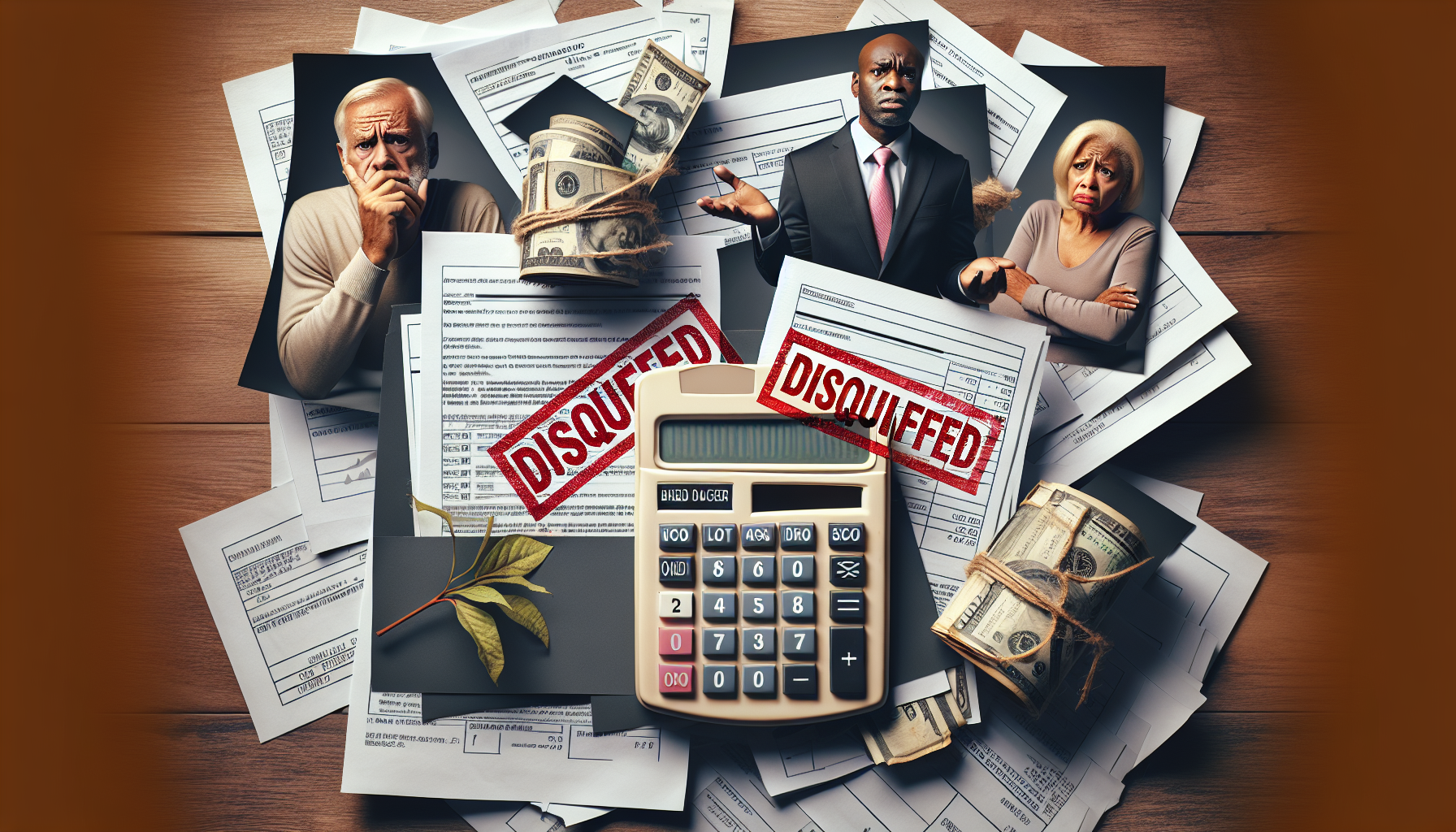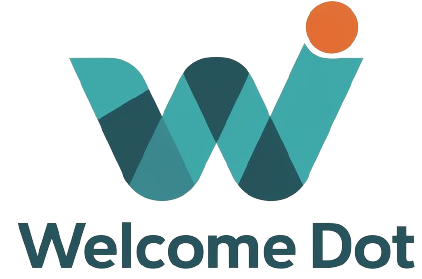
What Disqualifies You From Getting a Reverse Mortgage? – Explained
Reverse mortgages have become an increasingly popular financial tool for seniors looking to supplement their retirement income by tapping into their home equity. However, not everyone is eligible for this type of loan. There are several factors that can disqualify you from obtaining a reverse mortgage, even if you meet the basic age and home ownership requirements. In this article, we’ll explore the key eligibility criteria and common disqualification reasons to help you determine if a reverse mortgage is a viable option for your financial situation.
Reverse Mortgage Eligibility Requirements
Before diving into the disqualification factors, it’s essential to understand the basic eligibility requirements for a reverse mortgage. These criteria are set by the Federal Housing Administration (FHA) and the Department of Housing and Urban Development (HUD) to ensure that borrowers are well-suited for this type of loan.
To qualify for a reverse mortgage, you must meet the following requirements:
Minimum Age Requirement for Reverse Mortgages
One of the primary eligibility criteria for a reverse mortgage is age. You must be at least 62 years old to apply for this type of loan. This requirement applies to all borrowers listed on the title of the home, meaning that if you’re married and both you and your spouse are on the title, you both need to meet the minimum age requirement.
If you’re under 62 and considering a reverse mortgage, you’ll need to wait until you reach the qualifying age before applying. In the meantime, you can explore alternative financial options or focus on building your home equity to increase your chances of approval when you become eligible.
Home Equity Requirements for Reverse Mortgages
Another crucial factor in determining your eligibility for a reverse mortgage is the amount of equity you have in your home. Equity refers to the portion of your home’s value that you own outright, calculated by subtracting any outstanding mortgage balances from the current market value of your property.
To qualify for a reverse mortgage, you generally need to have at least 50 percent equity in your home. This requirement helps ensure that there is sufficient value in the property to justify the loan and protect the lender’s investment.
| Home Value | Outstanding Mortgage | Equity Percentage | Eligible for Reverse Mortgage? |
|---|---|---|---|
| $300,000 | $100,000 | 66.7% | Yes |
| $250,000 | $150,000 | 40% | No |
If you don’t meet the home equity requirement, you may need to wait until you’ve paid down more of your existing mortgage or consider alternative financial solutions, such as downsizing or taking out a traditional home equity loan or line of credit.
Primary Residence Requirement for Reverse Mortgages
To be eligible for a reverse mortgage, the property must be your primary residence. This means that you must live in the home for the majority of the year and cannot use the property as a second home or investment property.
The primary residence requirement is in place to ensure that the reverse mortgage is being used to support your housing and financial needs, rather than as a means of generating rental income or financing other properties. If you don’t meet this requirement, you will not qualify for a reverse mortgage on that particular property.
Financial Assessment for Reverse Mortgage Eligibility
In addition to the basic age, home equity, and primary residence requirements, lenders will also conduct a thorough financial assessment to determine your eligibility for a reverse mortgage. This assessment aims to evaluate your ability to meet the ongoing costs of homeownership and maintain the property in good condition.
Income and Expense Evaluation for Reverse Mortgages
As part of the financial assessment, lenders will review your income sources and monthly expenses to ensure that you have sufficient funds to cover property taxes, homeowners insurance, and home maintenance costs. They will typically request documentation such as bank statements, tax returns, and Social Security or pension statements to verify your financial situation.
If your income is deemed insufficient to meet these ongoing expenses, you may be required to set aside a portion of your reverse mortgage proceeds into a “Life Expectancy Set-Aside” (LESA) account. This account is used to pay for property taxes and insurance on your behalf, helping to mitigate the risk of default due to non-payment of these obligations.
Credit History Review for Reverse Mortgage Approval
While a perfect credit score is not necessarily required for a reverse mortgage, lenders will still review your credit history as part of the financial assessment. They will look for any major derogatory items, such as bankruptcies, foreclosures, or delinquent accounts, which could indicate a higher risk of default.
If you have a history of poor credit or delinquent payments, it may be more challenging to qualify for a reverse mortgage. In some cases, you may be required to provide additional documentation or explanations for any negative credit items to demonstrate that you have addressed these issues and are now financially stable.
Property Requirements for Reverse Mortgages
In addition to the borrower’s personal and financial qualifications, the property itself must also meet certain standards to be eligible for a reverse mortgage. These requirements are set by the Department of Housing and Urban Development (HUD) and the Federal Housing Administration (FHA) to ensure that the home is safe, secure, and structurally sound.
HUD Property Standards for Reverse Mortgages
For a property to qualify for a reverse mortgage, it must meet the basic HUD property standards. These standards cover a wide range of factors, including:
- Structural integrity and soundness
- Adequate roofing and weatherproofing
- Functional heating, electrical, and plumbing systems
- Absence of health and safety hazards, such as lead-based paint or asbestos
- Accessibility and ease of entry/exit
If your property does not meet these standards, you may need to make necessary repairs or renovations before you can be approved for a reverse mortgage. In some cases, you may be able to use a portion of your reverse mortgage proceeds to fund these required improvements.
FHA Property Requirements for Reverse Mortgages
In addition to the general HUD property standards, reverse mortgages are also subject to specific FHA property requirements. These requirements are designed to ensure that the home serves as adequate collateral for the loan and protects the lender’s investment.
Some of the key FHA property requirements for reverse mortgages include:
- The property must be a single-family home, a 2-4 unit home with one unit occupied by the borrower, a HUD-approved condominium, or a manufactured home that meets FHA requirements
- The home must be complete and habitable, with no unfinished or incomplete areas
- The property must have adequate flood insurance if located in a designated flood zone
- The home must not be subject to any pending legal or tax issues that could jeopardize the lender’s interest in the property
If your property does not meet these FHA requirements, you may need to consider alternative financing options or make necessary changes to bring the home into compliance before applying for a reverse mortgage.
Reverse Mortgage Disqualification Factors
While meeting the basic eligibility requirements is essential for obtaining a reverse mortgage, there are also several factors that can disqualify you from this type of loan. These disqualification factors are designed to protect both the borrower and the lender from potential financial risks and ensure that reverse mortgages are used responsibly.
Delinquent Federal Debts and Reverse Mortgage Disqualification
One of the most common disqualification factors for reverse mortgages is the presence of delinquent federal debts. If you have any outstanding federal tax liens, student loans, or other government debts that are in default, you will not be eligible for a reverse mortgage until these debts are resolved.
To qualify for a reverse mortgage, you must demonstrate that you are current on all federal obligations and have a plan in place to remain current throughout the life of the loan. If you have delinquent federal debts, you’ll need to work with the appropriate government agencies to establish a repayment plan or seek debt forgiveness before you can be considered for a reverse mortgage.
Poor Property Condition and Reverse Mortgage Ineligibility
Another factor that can disqualify you from a reverse mortgage is the condition of your property. If your home is in a state of disrepair or fails to meet the basic HUD and FHA property standards, you will not be eligible for this type of loan until the necessary improvements are made.
Some common property issues that can lead to reverse mortgage disqualification include:
- Structural damage or instability
- Leaking or damaged roofs
- Faulty electrical, plumbing, or heating systems
- Presence of health and safety hazards, such as mold or lead-based paint
- Accessibility issues that make it difficult to enter or navigate the home
If your property has any of these issues, you’ll need to address them before applying for a reverse mortgage. In some cases, you may be able to use a portion of your reverse mortgage proceeds to fund the necessary repairs, but this will depend on the severity of the issues and the lender’s assessment of your overall financial situation.
Reverse Mortgage Counseling Requirements
To help ensure that borrowers fully understand the implications and responsibilities of a reverse mortgage, the Department of Housing and Urban Development (HUD) requires all prospective borrowers to complete a mandatory counseling session with a HUD-approved counselor.
Mandatory HUD Counseling Session for Reverse Mortgages
The HUD counseling session is designed to provide you with unbiased information about reverse mortgages and help you make an informed decision about whether this type of loan is right for your needs. During the session, the counselor will review the following topics:
- The features and requirements of a reverse mortgage
- The potential benefits and drawbacks of this type of loan
- The costs and fees associated with a reverse mortgage
- Your responsibilities as a borrower, including the obligation to pay property taxes, homeowners insurance, and home maintenance costs
- Alternative financial options that may be available to you
The counseling session is typically conducted in-person or over the phone and can last between 60 to 90 minutes. After completing the session, you will receive a certificate of completion, which you must provide to your lender as part of the reverse mortgage application process.
It’s important to note that completing the HUD counseling session does not guarantee approval for a reverse mortgage. It is simply a required step in the process to ensure that you have a clear understanding of the loan and its implications before making a decision.
If you fail to complete the mandatory counseling session or do not provide the certificate of completion to your lender, you will not be eligible for a reverse mortgage until this requirement is met.
In conclusion, while reverse mortgages can be a valuable financial tool for many seniors, they are not suitable for everyone. By understanding the key eligibility requirements and disqualification factors, you can better assess whether a reverse mortgage is a viable option for your unique situation. If you do meet the qualifications and decide to move forward with a reverse mortgage, be sure to carefully review all the terms and conditions, and consult with a trusted financial advisor to ensure that this loan aligns with your long-term financial goals.
See also:
- What Happens to My Reverse Mortgage if I Go Into a Nursing Home
- How Do You Pay Back a Reverse Mortgage? – Bankrate
- What Happens if You Inherit a House with a Reverse Mortgage?
- What is a Lifetime Mortgage: Explained – Your Guide to Equity Release
- What is a Partial Claim Mortgage? Explained
